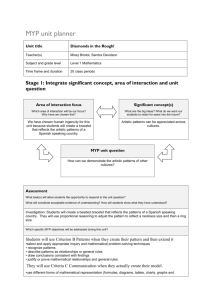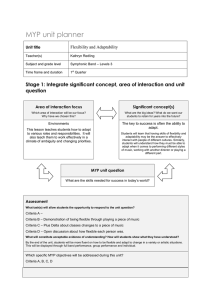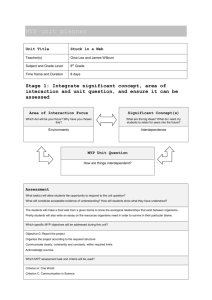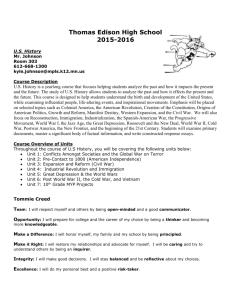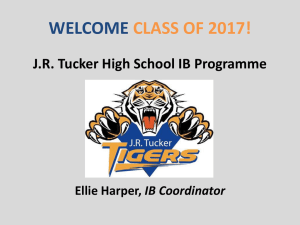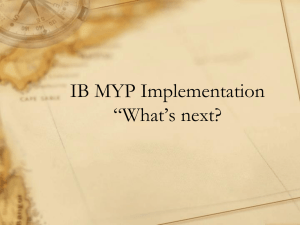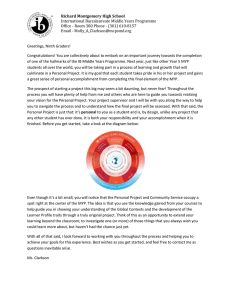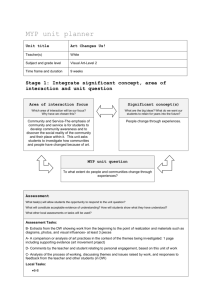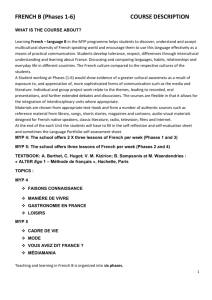Course Outline - North Miami Middle School
advertisement
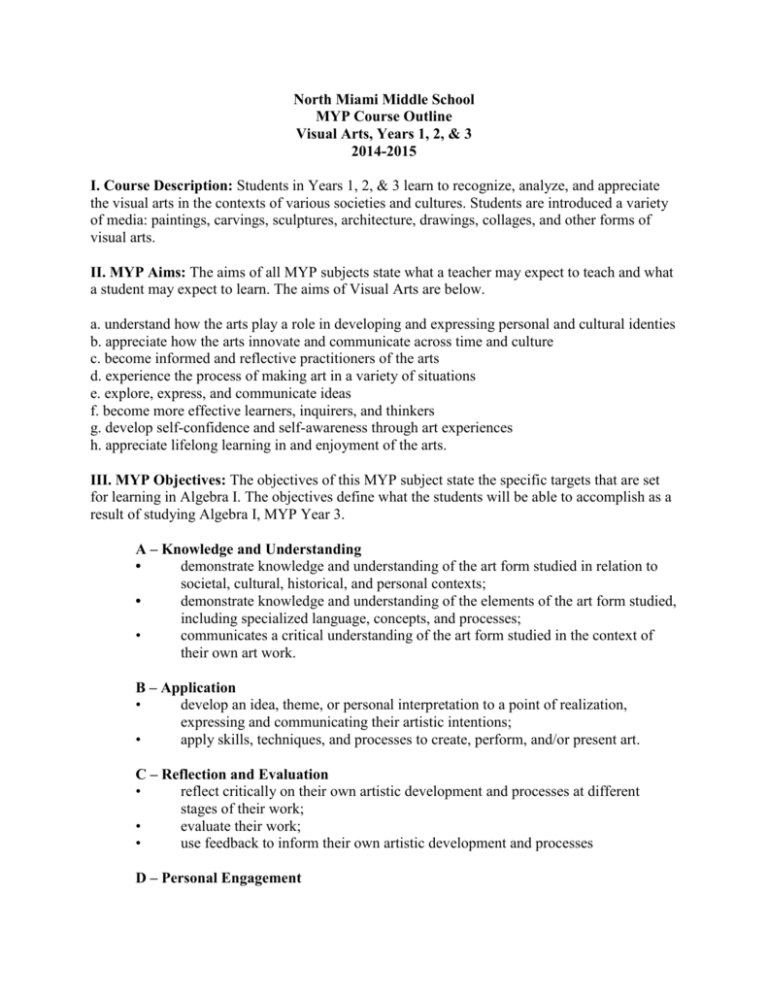
North Miami Middle School MYP Course Outline Visual Arts, Years 1, 2, & 3 2014-2015 I. Course Description: Students in Years 1, 2, & 3 learn to recognize, analyze, and appreciate the visual arts in the contexts of various societies and cultures. Students are introduced a variety of media: paintings, carvings, sculptures, architecture, drawings, collages, and other forms of visual arts. II. MYP Aims: The aims of all MYP subjects state what a teacher may expect to teach and what a student may expect to learn. The aims of Visual Arts are below. a. understand how the arts play a role in developing and expressing personal and cultural identies b. appreciate how the arts innovate and communicate across time and culture c. become informed and reflective practitioners of the arts d. experience the process of making art in a variety of situations e. explore, express, and communicate ideas f. become more effective learners, inquirers, and thinkers g. develop self-confidence and self-awareness through art experiences h. appreciate lifelong learning in and enjoyment of the arts. III. MYP Objectives: The objectives of this MYP subject state the specific targets that are set for learning in Algebra I. The objectives define what the students will be able to accomplish as a result of studying Algebra I, MYP Year 3. A – Knowledge and Understanding • demonstrate knowledge and understanding of the art form studied in relation to societal, cultural, historical, and personal contexts; • demonstrate knowledge and understanding of the elements of the art form studied, including specialized language, concepts, and processes; • communicates a critical understanding of the art form studied in the context of their own art work. B – Application • develop an idea, theme, or personal interpretation to a point of realization, expressing and communicating their artistic intentions; • apply skills, techniques, and processes to create, perform, and/or present art. C – Reflection and Evaluation • reflect critically on their own artistic development and processes at different stages of their work; • evaluate their work; • use feedback to inform their own artistic development and processes D – Personal Engagement • • • • show commitment in using their own artistic processes; demonstrate curiosity, self-motivation, initiative, and a willingness to take informed risks; support, encourage, and work with their peers in a positive way; be receptive to art practices and artworks from various cultures, including their own. IV. Global Contexts: In the Visual Arts, as in other subject areas, students benefit from developing conceptual understandings in global contexts. Global contexts serve as a framework from which students view new ideas. The Global Contexts used in the Visual Arts are below: • Identities and Relationships • Orientation in Time and Space • Globalization and sustainability • Personal and Cultural Expression • Fairness and Development • Scientific and Technical Innovation V. IB Learner Profile: Visual Arts is designed to enhance the Learner Profile characteristics of inquirer, knowledgeable, thinker, communicator, principled, open-minded, caring, risk-taker, balanced, and reflective. VI. Learning Methodologies: Students in the Visual Arts will learn through lecture, videos, museum trips, guest lecturers, hands-on applications, readings, writing activities, and visual thinking strategies. VII. Assessment Methodologies: Student are assessed through summative assessments for (a) Knowledge and Understanding, (b) Application, (c) Reflection and Evaluation; and (d) Personal Engagement. VIII. Grading Policy: Students are graded using the MDCPS grading scale. Students and parents may view grades at any time using the MDCPS Student/Parent Portal. Paper versions of grade reports and progress reports are issued quarterly. 100 - 90 = A; 89 - 80 = B; 79 - 70 = C; 69 - 60 = D; 59 - 0 = F. IX. Resources: Selected readings, Discovery Learning, the school's Media Center, guest lecturers, museum partnerships, and a variety of visual materials/resources.
